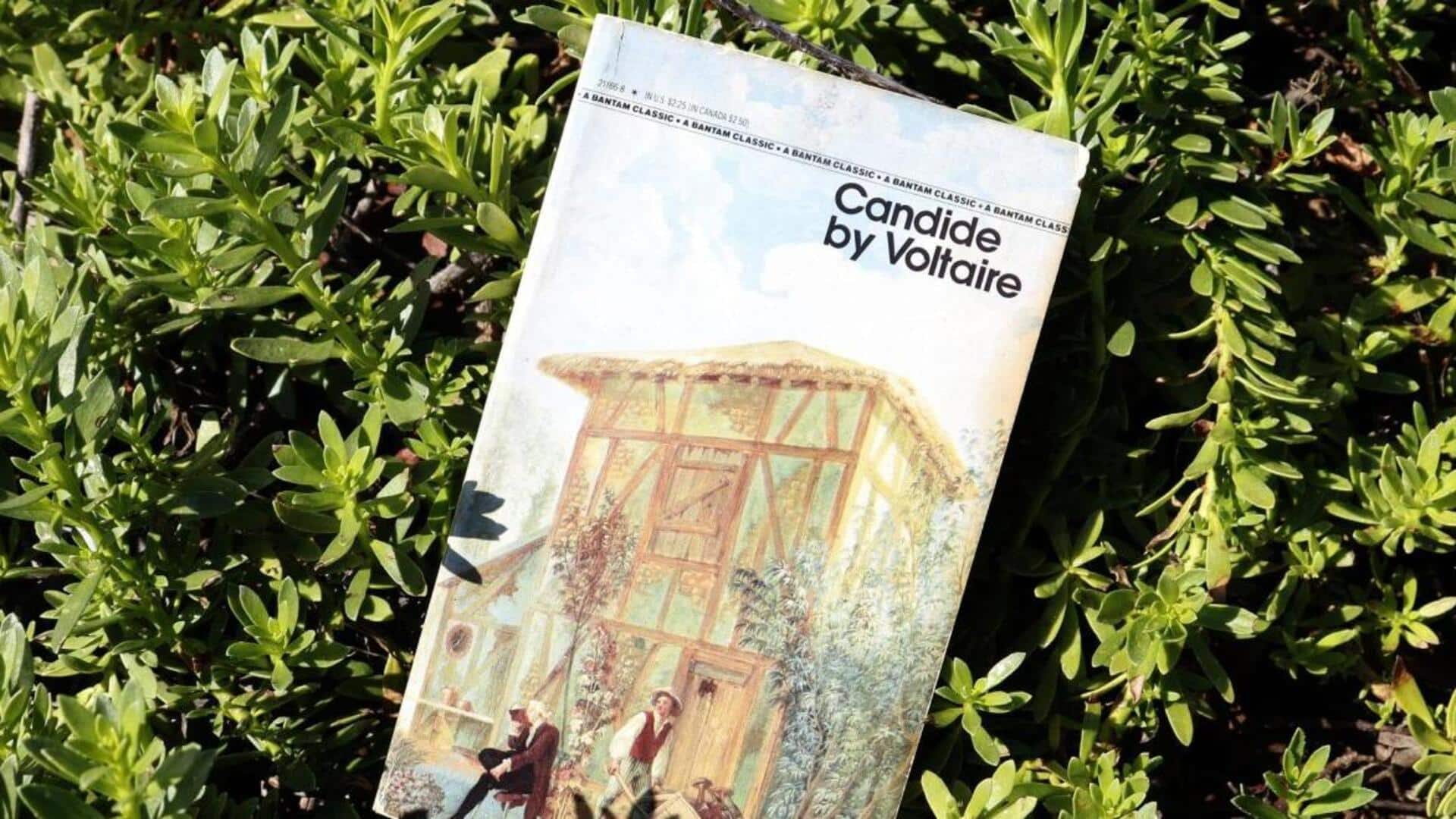
Finding balance with the 'Candide' novel
What's the story
Voltaire's Candide is a satirical masterpiece that follows the misadventures and trials of its eponymous protagonist.
This philosophical narrative explores themes of optimism, pessimism, and the pursuit of happiness.
Through Candide's journey, Voltaire provides valuable perspective on navigating the delicate balance between ambition and contentment, a struggle often encountered in our personal and professional lives.
Embrace change
Embrace life's uncertainties
Candide imparts the profound lesson that life is inherently unpredictable and uncertain.
Candide's transformation from a naive optimist to a wiser realist mirrors the necessity of embracing change rather than resisting it.
Accepting the uncertainties of life and welcoming change, rather than fighting against it, is the key to personal growth and understanding.
Personal growth
Cultivate your garden
The most famous lesson from Candide is that everyone must cultivate his or her garden.
This metaphorical advice encourages us to focus on personal growth and making a positive impact within our immediate surroundings.
By dedicating time to self-improvement and fostering meaningful connections with those around us, we can cultivate a sense of fulfillment.
Critical thinking
Question blind optimism
In Candide, Voltaire satirizes blind optimism with the character of Pangloss, who maintains an unwavering positive outlook despite experiencing numerous misfortunes.
This depiction is a warning against oversimplifying life's complexities.
Acknowledging life's difficulties without losing hope creates a healthier perspective, improves decision-making, and ultimately leads to greater happiness.
This balance between optimism and realism is key to effectively managing life's uncertainties.
Simplicity
Value experiences over material wealth
Throughout his journey, Candide gains wealth and then loses it all, highlighting that true happiness does not lie in material possessions, but in experiences and relationships.
This cycle of acquisition and loss underscores the importance of simplicity over excess, urging us to concentrate on what really counts: the relationships we cultivate and the experiences we treasure.
These are the true architects of happiness.
Purposeful action
Find joy in work
At the end of Candide, toiling in the land brings contentment and tranquility to Candide and his companions.
"Exerting oneself to engage in meaningful work or activities is pivotal to experiencing a sense of purpose and happiness.
Discovering delight in everyday tasks can be an oasis of calm amidst the whirlwind of life."